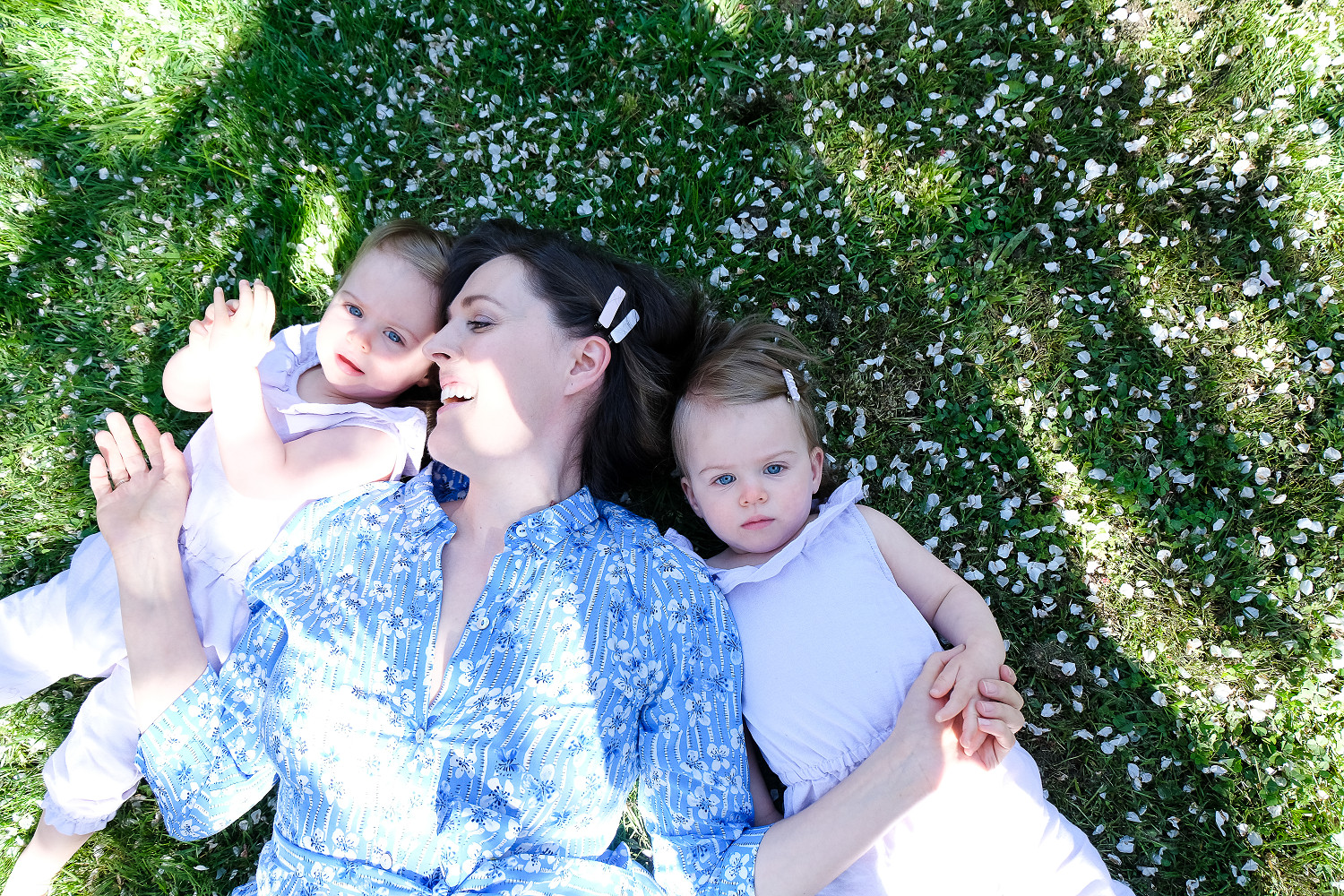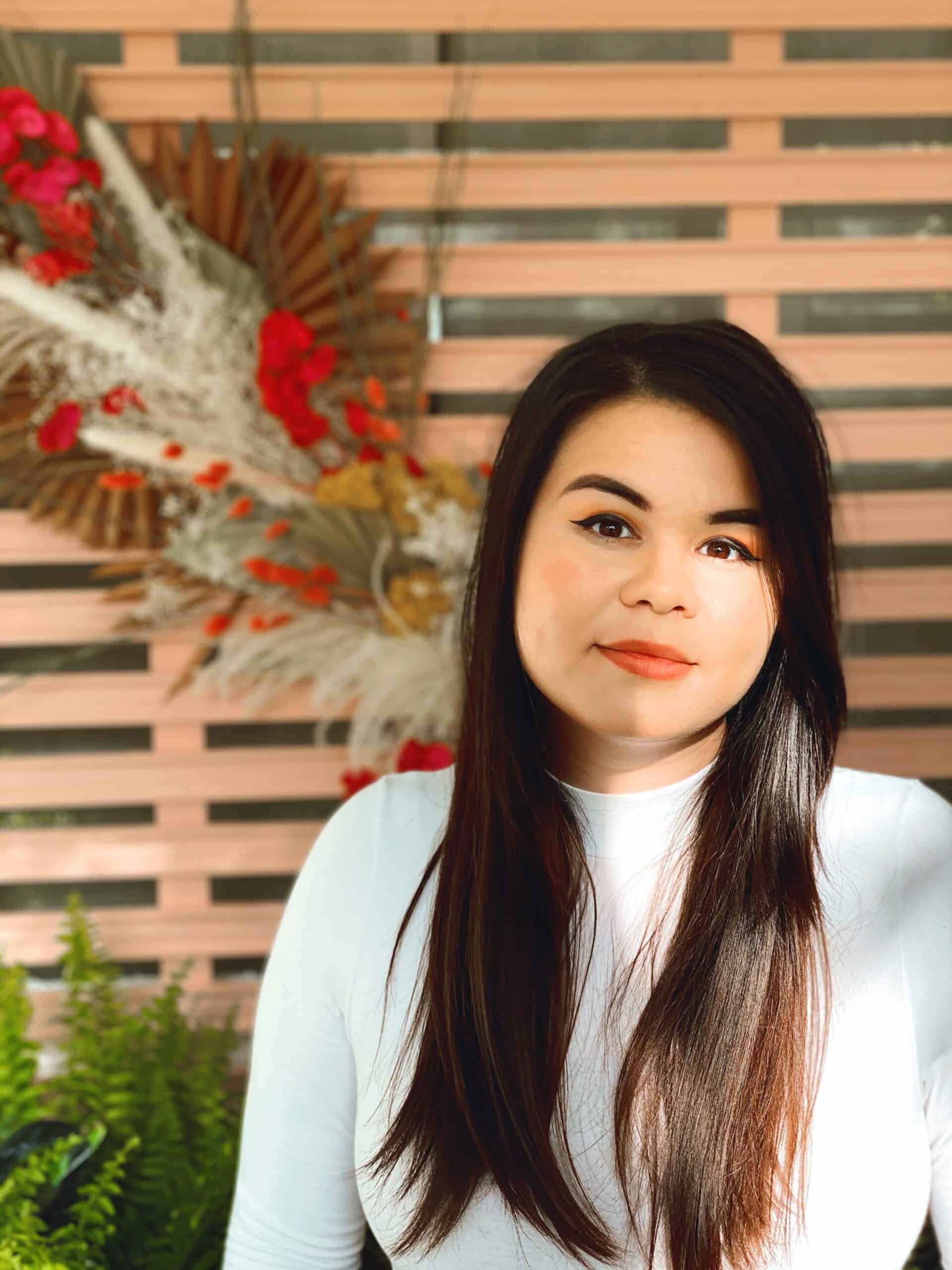In the midst of the overwhelming journey that is motherhood, Tijana, the creator of the Flourishing Postpartum Planner, has emerged as a guiding light for new mamas. Her personal experience as a first-time mom to twins during the early days of the pandemic shaped her mission to ensure no mother feels lost or unsupported in the critical postpartum period. Through her planner and services, Tijana empowers women to build strong, personalized postpartum plans, enabling them to thrive with confidence, care, and a sense of community. In this interview, she shares her heartfelt journey, invaluable insights, and the passion that drives her to help other mothers flourish.
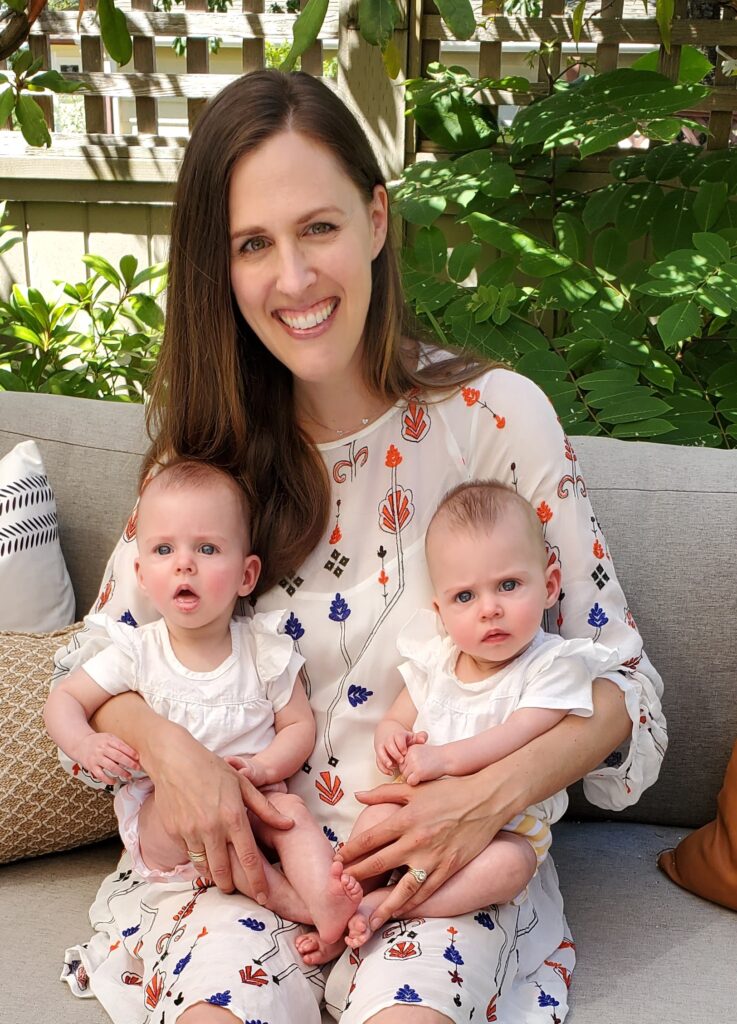
What inspired you to create the Flourishing Postpartum Planner?
After becoming a mama to twins in early 2020 I had no support or postpartum plan. I was completely lost. During the day I was alone with premature twins and struggled. Due to the pandemic when I finally had a chance to tell someone I was having a difficult time, I was told there was no support and most people were struggling. I never want another mama to feel how I did, unprepared and with no one to lean on. The Flourishing Postpartum Planner is meant to be used before the baby arrives so mama can have a solid postpartum plan and support in place.
Can you share a bit about your personal postpartum journey and how it influenced your work?
Becoming a mama in 2020 is something I never could have imagined. There was no support, doctor’s appointments, or mommy and me classes. Wandering around my neighbourhood and home, day after day was very difficult mentally. I suffered with undiagnosed postpartum depression and anxiety while trying to take care of two babies. Being on the other side, knowing what I know now with my experience and some therapy, I truly believe if a mama is supported and has a plan in place she will thrive in the postpartum period.
What were some of the biggest struggles you faced during your postpartum period?
Being alone. Everyone talks about the village, but not why the village is so important for a postpartum mama. Not being able to have a break or speak to another adult for what felt like days was very hard. My husband was home, but was an essential service so gone for most of the day. As a first time mama, I also had all these visions of what postpartum would look like, family visits, walks with friends, new mama friends, and obviously none of that was possible in 2020.
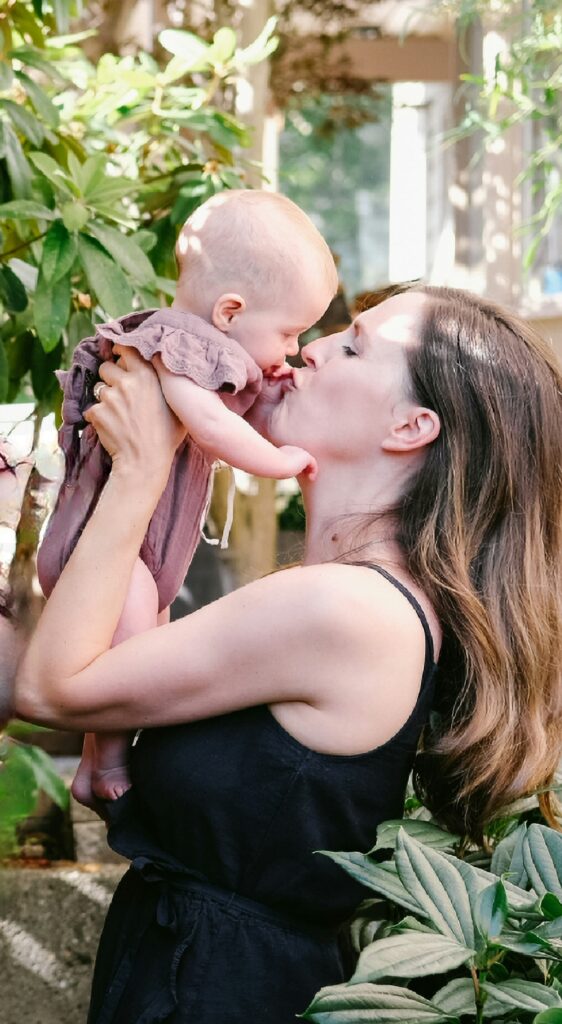
How did those experiences shape the resources and support you offer through your planner?
I realized how important a support system was in postpartum. Not all families can afford to work with a postpartum doula, but I believe in creating a postpartum plan for yourself, and your partner, the family is increasing their chances of better postpartum outcomes. Hiring a postpartum doula has been shown to reduce the risk of postpartum depression, enhance breastfeeding success, improve maternal-infant bonding, and increase parental confidence and competence. I believe these same points can apply when you build a personalized postpartum plan.
What advice would you give to new mothers who might be feeling overwhelmed or unprepared for postpartum?
You are not alone. Postpartum can be such an unknown. We spend so much time planning for the birth, with little time on the postpartum plan. But birth lasts hours and postpartum is months. It’s time we put the same effort into creating a postpartum plan as we do a birth plan. Start planning! Even if you are already in postpartum, it’s never too late to create a plan or ask for help. I think as new mamas there’s a feeling, we should be able to do it all. Asking for help can be hard but make such a difference in how a mama can feel in postpartum. Whether it’s asking a friend to come and look after the baby while you have a shower or calling a family member to drop off dinner after a difficult night, these may seem like big asks, but those people who care about us want to help. If you live in a city without family or close friends, order an affordable dinner or hire a postpartum doula to come for a few hours.
How do you incorporate self-care into your postpartum doula work, and why is it important?
Self-care is essential for mamas, at every stage of motherhood. Self-care is what recharges mamas. Ways I encourage self-care as a postpartum doula: have clients create a postpartum bathroom box, this ensures all postpartum essentials are always within reach; create a nighttime routine, this could be as simple as brush your teeth, wash your face, apply moisturizer, set up anything you’ll need for night feeds and listen to a meditation to fall asleep; ask for help. This may seem simple, but as a new mama it can be difficult. If someone can watch the baby so a mama can rest or drop off a meal on a day she is tired, a mama can feel rested.
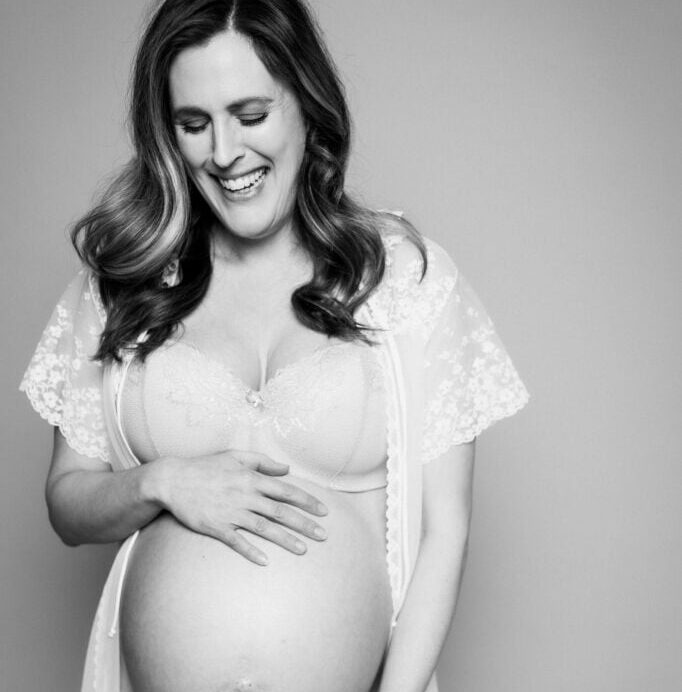
Could you share a success story or a particularly rewarding experience from your work with new mothers?
I was supporting a family who welcome their second baby and their older child was having a difficult time with the transition. We worked together to create a plan, I provided a personalized guide, along with some readings for the parents. Within less than a week the older child went from hitting, yelling and being upset about the baby to feeling as though the new baby was part of the family. It was amazing to see how small shifts and language adjustments made such an impact, for the whole family.
What are some common misconceptions about postpartum care that you aim to dispel through your work?
A few thoughts come up around this, first hiring help or asking for assistance from family or friends does not mean anything about you as a mother. You are not failing. I believe a mama who creates the proper postpartum care for herself will be able to take better care of herself, her baby and family. The idea that needing support in postpartum means you have a PMAD. A mama can feel overwhelmed, tired or exhausted for many reasons, it doesn’t mean her mental health is the issue. She could simply need more support or sleep.
How do you approach the topic of setting boundaries with family and friends during the postpartum period?
This is one of the reasons I ask mamas to create a postpartum plan before the baby arrives. It’s easier to set boundaries when you are sharing your vision for postpartum rather than in the heat of the moment. My brother and his family no longer speak to us because a pediatrician decided they couldn’t go into the NICU. If we’d had that conversation before our twins were born it may have been a different outcome. Once a family has their postpartum plan, they know when they want visitors, what they need help with and can sit down with their family and friends to share their wishes. The family or friends may not always agree with your choices but hopefully it gets the conversation started.
What role does community support play in a mother’s postpartum journey, and how do you encourage mothers to build their support networks?
I believe motherhood can feel lonely without a community. We need other mamas to connect with, share stories, or ask questions. There are many ways to build a support network, join mommy for me classes, look for postpartum meet ups in your community, find classes for mamas or if getting out of the house is difficult look for online support groups or meet ups.
What are some key elements or features included in your Flourishing Postpartum Planner?
Education, information and tips about postpartum. This isn’t simply a planner with a question and blank pages to fill in. There are 10 chapters to read, get educated and then figure out your personalized postpartum plan. Everything in The Flourishing Postpartum Planner is something I struggled with or my clients have difficulty with in the fourth trimester. Chapters cover everything from physical healing, emotional shifts, meal planning, family education, a partner plan and getting to know your newborn.
How do you tailor your support and resources for mothers who may have had challenging birth experiences, such as emergency cesareans or NICU stays?
Each family I support is unique and sometimes we need to change the plan in the moment. I have additional training in Complicated Birth Support, had an emergency caesarean and am a NICU mama myself. All of the clients I work with get the Flourishing Postpartum Planner and a client binder. In the case of an emergency caesarean, I would encourage the mama to talk about her birth experience, helping her to process what happened, making sure to point out the beautiful or positive moments. I’d also have her write out her birth story as that has been very helpful for myself and other mamas I work with. Sometimes with an emergency cesarian there can be more pain and swelling, so advising the mama on how to take it slow, get up correctly and ask for help if she’s in pain. I’d add additional information about birth trauma and birth story into her client binder, making sure to touch on these topics with her but also let he know I’ve added resources to her binder for review. I could share blogs and podcasts as well, depending on the mama. In terms of a NICU stay, a support group is always a great idea. The NICU is a very unique experience and other parents may not understand. I’d speak to the mama or parents about the NICU, ask them how they are doing and what they need support with. I have handouts for the NICU and would also add these to the client binder. In both cases I think mothers need to know they are not alone. There are others, beyond myself, they can connect with to help process, discuss and understand their situation.
What impact do you hope to have on the postpartum experiences of mothers who use your planner and services?
I hope my planner and services allow mamas to enter into motherhood fully supported. With the confidence gained, mamas can call on a friend or family member if they need help or reach out to paid support if further assistance is required for their emotional or physical state. I hope mamas know at every point they are not alone, the postpartum experiences, feelings and struggles other mamas can relate to. I hope mamas create good habits with meal planning, nighttime routines, boundaries and open communication with their partner. Yes, I’m supporting mamas in postpartum or helping them to plan, but it’s bigger than the first few months after birth. I want mamas to continue to flourish in their motherhood journey, but they first need to realize it starts by supporting themselves.
How do you stay updated with the latest research and developments in postpartum care to better serve your clients?
Great question! I do a lot of reading about postpartum and make sure I am keeping up to date on the latest research, statistics and changes to data. Whenever courses I’ve taken are updated I make sure to review. I’m also constantly learning, if a client is interested in a certain area or wants to know more about something I don’t have a lot of training in, I will find a course to take. I’m always learning, which feels wonderful. Currently I’m enrolled in an infant & pregnancy loss course and will start my perinatal education training in the fall.
What message or takeaway do you hope women remember after using your planner and receiving support from your services?
I hope women realize they can do it all, but they don’t have to. Working with me or using the Flourishing Postpartum Planner is about creating a supported plan for the mama. We as mamas sometimes consider our needs last and I want to make sure mamas realize how important putting themselves first allows them to feel supported, joyful, confident and can reduce burn out, overwhelm and possibly anxiety.
IG: @flourishingpostpartum
Pinterest: https://www.pinterest.com/flourishingpostpartum/
